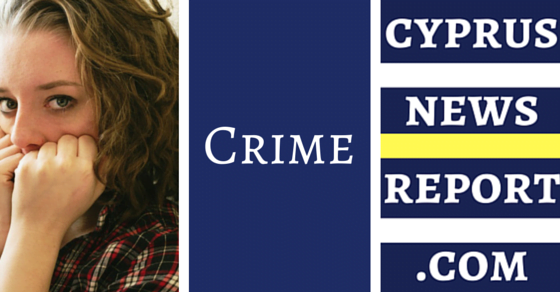
Cyprus: Fighting Crime Hampered by Police Corruption
Serious crime like drug and people trafficking, financial crimes, and murder are growing, and the police are hampered by corruption. Most women who are trafficked get pregnant, and shockingly, one in five have had more than five abortions.
In the wake of the ghastly public murders of four people - including a well-known mafia boss - in Ayia Napa in June, Justice Minister Ionas Nicolaou said that the authorities’ crime-fighting efforts are hampered by police corruption.
Answering AKEL’s accusations that he was ‘nowhere’ when it came to serious crime, the minister commented that they should wait for outcome of the murder investigations, adding that he had never tried to hide that there’s a problem with corruption and abuse of power in the police.
Zero tolerance
While the policy of zero tolerance for corruption has started making some positive changes in the police force, there is still damage to its credibility, he said.
Some officers who were reported for corruption have chosen to resign instead of facing disciplinary action or prosecution, adds the minister. In addition, there are new psychological tests showing which individuals are most susceptible to the temptation of corruption.
Each corruption allegation is investigated by an independent body, while awareness about what corruption and abuse of power actually means has been boosted by new training sessions, said Nicolaou. Any allegation must be proved, and in some cases this is extremely difficult. The policy in these cases is to transfer the individual to other duties, said Nicolaou.
The cases of corrupt officers are relatively few, but they create a negative image for the rest of the police, he said.
Challenges
Cyprus faces significant challenges in crime fighting. While being relatively safe when it comes to petty crimes, serious violent crimes and epic white collar crimes are unfortunately on the rise and have been for the last 10-15 years.
In recent years, more urgently-needed resources have been invested in training officers and hiring experts.
Human trafficking
As a Tier 1 country, Cyprus is a destination for human trafficking. Women, men and children are sold into sexual or other type of slavery, and until recently, not much action was taken to prevent these crimes.
Rita Superman, who heads the police’s anti-human-trafficking unit, has just been praised by John Kerry for her leadership and heroism in fighting real monsters. She shares some hair-raising and frightening stories that seem to belong in the 18th Century.
“I cannot even imagine where Irina from Moldova would be had we not freed her from the criminal network that forced her into prostitution in a cabaret a few years back. She was only 20 years old. She had come to Cyprus believing she had earned a scholarship. She was instead forced into sex trafficking. We hid her, but they were looking for her. We changed her name and she went to university. When the trial started, she was threatened that she would be sent back to her country in a coffin. Unfortunately, the defendants were acquitted. This did not make Irina any less of a victim. Today, she has completed her studies and works for an international company,” says Rita Superman.
She adds: “I cannot imagine what would happen to Pham from Vietnam, whose arm was amputated due to the very poor working conditions in the agricultural industry and who spent a whole year in a hospital because of this injury. He was then arrested as an illegal immigrant and only at that time came the recognition that he was a victim. Pham was a classic victim of labor trafficking.”
Terrible abuse
Anti-trafficking NGO Freedom Dolls Initiative (FDI) reports that the healthcare industry could also help spot victims. They often come into hospitals and clinics with gunshot wounds, burns, bruises, stab wounds, rape injuries and malnutrition.
They often don’t know what city they are in, and have a controlling companion who insists on answering questions. The victims are even tattooed with someone’s name, and have a fearful, submissive demeanour with signs of physical abuse.
Most of the trafficked women - 71% - become pregnant. Around one-in-four have five or more abortions, at the obvious risks to their health. Over half of them suffer miscarriages.
Doctors and nurses are urged to build relationships with the relevant authorities, to help save these victims from an even worse fate.
About Sarah Fenwick
Editor, journalist, jazz singer and digital marketing consultant.
Bookmark worthy
- Non Gamstop Casino
- Casino Not On Gamstop
- Non Gamstop Casinos
- Casino Italiani Non Aams
- Slot Sites Not On Gamstop
- Best Non Gamstop Casinos UK 2025
- Crypto Casino
- Online Casinos UK
- Betting Sites Not On Gamstop UK
- UK Casino Not On Gamstop
- Best Non Gamstop Casinos
- Sites Not On Gamstop
- Online Betting Sites Not On Gamstop
- Non Gamstop Casino
- UK Casinos Not On Gamstop
- Non Gamstop Casino
- Casino Sites Not On Gamstop
- Casino Non Aams
- Casinos Sin Licencia España
- Casino Sites UK
- Slots Not On Gamstop
- Best Slot Sites For Winning UK
- Casino En Ligne
- Slots Not On Gamstop
- Non Gamstop Casino Sites UK
- Casino Non Aams
- Non Gamstop Casinos
- Meilleur Casino En Ligne France
- Meilleurs Sites De Paris Sportifs Belgique
- Nouveau Casino En Ligne Belgie
- Nouveau Casino En Ligne Francais
- Paris Sportif Ufc France
- Casino En Ligne Retrait Immediat
- Migliori Casino Online
- Site Casino En Ligne
- Nouveau Casino En Ligne Francais
- Casino En Ligne Francais
- Casino En Ligne
- Best Online Casino Sites In Malaysia
- Avis Tortuga Casino

Leave a reply
You must be logged in to post a comment.